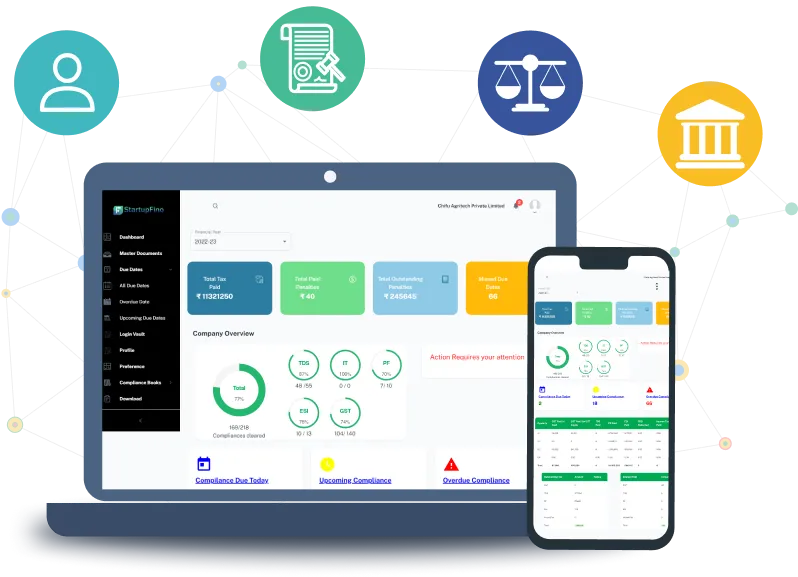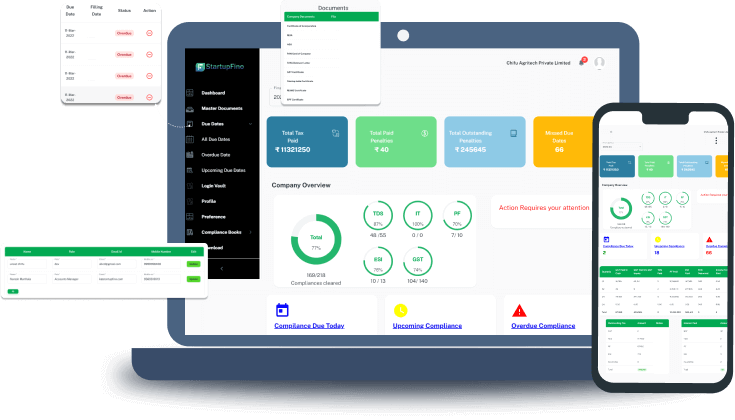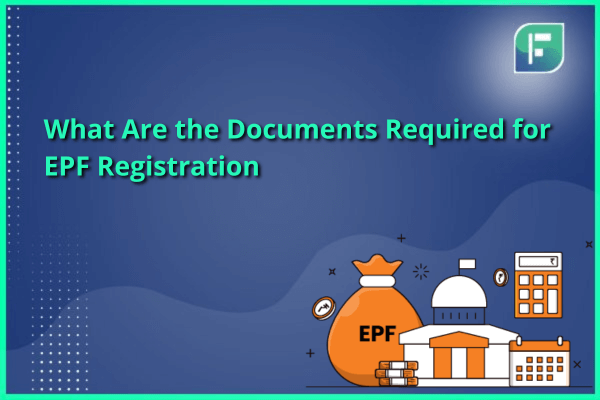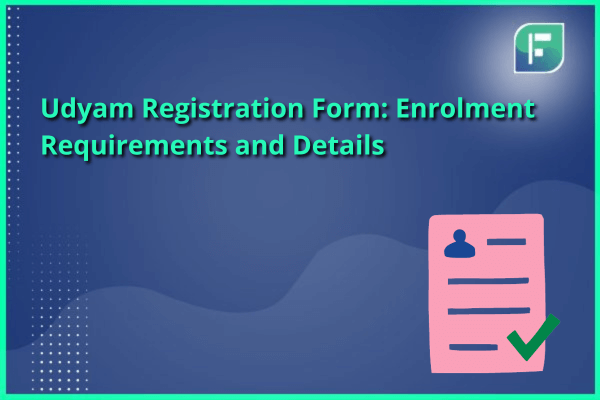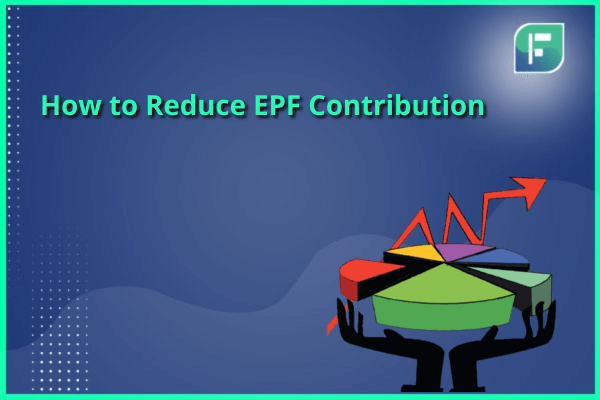The provident fund serves an important role in promoting a culture of savings among employees, ultimately aiming to secure their financial well-being during retirement. This social security system involves both employers and employees making monthly contributions. Withdrawal of provident fund contributions is generally restricted until the employee retires, with a few exceptions. Ensuring accountability, employers with PF registration are obligated to submit monthly returns as part of EPF compliances.
Timely action is imperative, as provident fund return filing must be completed on or before the 25th of each month. Fortunately, employers can now effortlessly complete PF return filings through the user-friendly Unified Portal.
It's noteworthy that PF returns should be a routine commitment for employers with PF registration in India, requiring monthly filings to maintain EPF compliance.
Understanding the Employee Provident Fund
The Employee Provident Fund is an important retirement benefit designed to provide financial security and stability for employees during their post-employment years. This social security fund plays a vital role in safeguarding the interests of workers as they transition into retirement.
Applicability of EPF
EPF applies to specified factories or establishments where 20 or more individuals are employed. Notably, recent amendments have lowered the threshold to a minimum of 10 employees. Moreover, any factory or establishment, regardless of size, has the option to voluntarily come under the EPF Act.
Eligibility Criteria for EPF
Individuals eligible for EPF include those engaged in the work of an establishment or employed by a contractor linked to the establishment. Eligibility is based on a monthly salary of up to Rs.15,000, calculated as the sum of Basic Salary and Daily Allowance. This eligibility decides enrolment in the EPF scheme.
Rates of Contribution to EPF
The contribution to EPF involves both employers and employees. Employers contribute 12% and employees also contribute 12% of their salary to the fund. Additionally, a 1.16% contribution is made to the Central Government. The part paid by Central Government ensures that this social security scheme benefits maximum number of people.
Insurance Scheme under EPF
Participants contributing to the Provident Fund are automatically enrolled in an insurance scheme that provides coverage during their service period. Employers contribute 0.5% to this insurance scheme, with a maximum pay out of Rs.100,000 in the event of the employee's demise.
Pension Fund within EPF
All employees covered by the Provident Fund are automatically enrolled in the Pension Scheme. Employers contribute 8.33% of the Basic Salary (up to Rs.15,000) to the Pension Scheme. To qualify for a monthly pension, a minimum of ten years of contributory service is required. The full pension becomes payable after completing 20 years of contributory service. This aspect underscores the long-term commitment of the EPF in securing the financial future of retired employees
Benefits of EPF Registration and EPF Compliance
The Employee Provident Fund offers a range of benefits to employees covered under its various schemes, ensuring financial security and support throughout their employment and post-retirement period.
1. Advances and Withdrawals:
Employees have the flexibility to take advances or make withdrawals from their EPF accounts, providing financial assistance for various needs such as education, medical expenses, home loans and marriage.
2. Nominee and Legal Heirs' Entitlement:
In the unfortunate event of a member's demise, the PF amount is payable to the nominees or legal heirs, providing financial support during challenging times.
3. Employer Contributions to Pension:
Employers not only contribute to the PF but also make essential contributions towards the employee's pension. This pension fund becomes accessible to the employee post-retirement, ensuring a steady income stream.
4. EDLI Scheme Insurance:
Under the Employees' Deposit Linked Insurance Scheme, employees are adequately insured, allowing them or their beneficiaries to avail a lump sum benefit in the event of the employee's death while in service.
6. Tax Benefits (EEE Scheme):
EPF enjoys tax benefits under the Exempt, Exempt, Exempt (EEE) scheme of the Income Tax Act. This means that contributions, accruals and withdrawals from the EPF are tax-free for employees, enhancing the overall returns.
7. Interest on Savings:
Employees receive special benefits in the form of added income to their savings in the shape of interest accrued on their EPF contributions, promoting the growth of their financial portfolio.
8. Portability of PF Account:
The PF account is transferrable if a member changes employment from one establishment to another where the Provident Fund scheme is applicable. This ensures continuity of benefits and savings irrespective of changes in employment.
These comprehensive benefits make the EPF an integral component of employees' financial planning, contributing to their welfare, financial stability and long-term security.
Employee Provident Fund Annual EPF Compliance Requirements
The Employee Provident Fund is a government-backed savings plan accessible to employees across the Indian government, public and private sectors. Under the administration of India's Employees' Provident Funds Organisation, it plays a vital role as a financial tool, offering employees essential savings and retirement benefits.
Annual EPF Compliance Requirements for Companies
Companies, particularly those with more than 20 employees, are obligated to register with the PF department. Additionally, companies with fewer than 20 employees can voluntarily register to offer their employees EPF benefits. Given below are the annual Compliance requirements for companies under the EPF Act:
1. Registration:
- Businesses employing 20 or more individuals must compulsorily register with the PF department.
- Companies with less than 20 employees can voluntarily register within one month of hiring their 20th employee.
2. Contributions:
- Employers are required to contribute 12% of the employee's starting salary to the EPF and employees must contribute an additional 12%.
- Both employer and employee contributions must be regularly deposited with the PF department within the stipulated time.
3. Deposit and Submission Timeline:
- Contributions must be deposited by the 15th of the month.
- EPF reports, including employee information, monthly salaries, UAN (Universal Account Number), number of leaves and other relevant details, must be submitted by the 25th of the month.
4. New Employee Enrollment:
- Upon hiring, new employees must be enrolled in the PF department by completing the necessary paperwork.
EPF Compliance Checklist under the EPF Act
Ensuring compliance with the provisions of the Employee Provident Fund Act is essential for both employers and employees for Compliances. The following checklist provides key provisions and the corresponding deadlines for compliance.
|
S.No.
|
Provisions
|
Compliance Deadline
|
|
1
|
Employer and Employee’s PF dues
|
15th of the following month
|
|
2
|
Payment of Pension Fund
|
15th of the following month
|
|
3
|
Payment of Insurance Fund
|
15th of the following month
|
|
4
|
Detail of employees
|
Within 1 month of coverage in the prescribed form
|
|
5
|
Nomination Form
|
Immediately on joining the fund in the prescribed form
|
|
6
|
Addition of members
|
Within 15 days of the following month in the prescribed form
|
|
7
|
Deletion of member
|
Before the 21st of the following month in the prescribed form
|
|
8
|
Details of contribution
|
By the 25th of the following month in the prescribed form
|
|
9
|
Detail of wages and contribution
|
By 30th April every year for each member
|
|
10
|
Yearly Consolidated statement of contribution
|
To be forwarded yearly along with Form 3A
|
|
11
|
Return of ownership of the establishment
|
Within 15 days of coverage and whenever there is a change in ownership
|
|
12
|
Transfer of PF
|
Form 13 needs to be filed
|
In addition to the above, Compliance related to insurance and pension must also be duly adhered to in accordance with the EPF Act. It is imperative for employers and employees to meet these deadlines to ensure the effective functioning of the EPF system and the fulfilment of statutory obligations.
Withdrawal Rules under EPF Act
The Employee Provident Fund Act delineates specific rules governing the withdrawal of funds, providing flexibility for employees under various circumstances.
Complete Withdrawal:
Funds from an EPF account can be entirely withdrawn in full settlements under the following conditions:
- Upon reaching the age of 58.
- At the time of retirement, allowing employees to claim a complete settlement.
- If an employee remains unemployed for a continuous period of 2 months or more.
- In the unfortunate event of an employee's death while in service before attaining the retirement age. In such cases, nominees or legal heirs are entitled to withdraw the accumulated fund.
Partial Withdrawal:
The EPF Act also allows for partial withdrawal of funds under specific circumstances, including:
- Educational opportunities.
- Medical treatment.
- Repayment of a home loan.
- Marriage expenses.
- Purchase of land, house or flat.
- Closure of the establishment or factory.
- Natural calamities causing financial distress.
- A year before the official retirement age.
- Unemployment for a period exceeding one month.
These provisions recognise the diverse financial needs and challenges employees may face during their working years. By providing avenues for partial withdrawals, the EPF Act aims to support individuals in meeting critical life events and unforeseen circumstances, ensuring the flexibility and utility of the EPF scheme.
Penalties on Non-Compliance with EPF Act
Non-compliance with the provisions of the Employee Provident Fund Act can result in significant penalties. The penalties are structured to encourage timely adherence to contribution schedules and ensure the smooth operation of the EPF system.
1. Interest for Delay in Payment of Contribution:
A penalty of 12% per year interest is levied for each day of delay in the payment of contributions.
2. Penalty on Late Payment:
- Delay up to 2 months: 5% interest per annum.
- Delay of 2-4 months: 10% interest per annum.
- Delay of 4-6 months: 15% interest per annum.
- Delay of more than 6 months: 25% interest per annum, not exceeding 100% at a time.
These penalties are structured progressively, with the severity increasing based on the duration of the delay. The intention is to incentivise employers to adhere to the prescribed timelines for EPF contributions. Timely contributions are important for the financial well-being of employees and the effective functioning of the EPF system. Employers are, therefore, encouraged to fulfil their obligations promptly to avoid accruing additional financial liabilities in the form of penalties. This framework emphasises the importance of compliance with the EPF Act and underscores the consequences for deviations from the stipulated timelines.
Forms Needed for EPF Compliance
Various forms are essential for different transactions and claims under the Employee Provident Fund scheme. Given below are the key forms falling under Annexure-C:
1. Form 31 (PF Advance Form):
Used for obtaining withdrawals, loans and advances from the EPF account.
2. Form 10D:
Used for availing a monthly pension under the EPF scheme.
3. Form 10C:
Used to claim benefits under the EPF scheme. Specifically, it is used to withdraw the funds that the employer contributes towards the Employee Pension Scheme (EPS).
4. Form 13:
Used to transfer PF amount from a previous job to the current one. This helps consolidate all PF funds under one account.
5. Form 19:
Used to claim the final settlement of the EPF account when leaving employment.
6. Form 20:
Family members can use this form to withdraw the PF amount in case the account holder passes away.
7. Form 51F:
This form can be used by a nominee to claim the benefits of the Employees’ Deposit Linked Insurance.
Understanding and utilising these forms is important for employees to facilitate various transactions and claims related to their EPF accounts. Whether seeking advances, transferring funds, claiming pension benefits or settling accounts, the appropriate form must be filled out accurately and submitted to the EPFO for processing.
Why Choose StartupFino for EPF Compliance Services?
StartupFino is a company that specialises in offering complete services for EPF compliance services. We offer comprehensive assistance, guiding you from initial advice to meeting all the essential requirements and compliance for your EPF registration and licencing.
The Compliance requirements mentioned here are vital to ensure the smooth functioning of the Employees Provident Fund Scheme, guaranteeing that both employers and employees fulfil their financial obligations. Timely contributions and accurate reporting are essential for the effective operation of the EPF scheme and the financial well-being of the workforce. Companies must adhere to these annual Compliance requirements to stay in line with the regulations set forth by the EPF Act.

